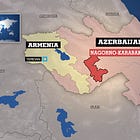ISIS Declares War On Russia?
Has The War In Ukraine Left Russia Vulnerable On The Homefront?
Just Putin secured a further six years in power at the head of the Russian government, Moscow became the site of one of the most horrific terror attacks on Russian soil in decades.
At least 40 people were killed and more than 100 were injured after armed attackers opened fire inside a popular concert venue complex near Moscow, according to preliminary information from the Federal Security Service in Russia, state media TASS reported.
Meanwhile, Russia 24 reports the roof of the Crocus City Hall concert venue, where the attack unfolded, has partially collapsed.
According to initial reports, three men in camoflauge attacked the concert venue with automatic weapons and incendiary devices.
RIA Novosti reported the three men “opened fire with automatic weapons” and “threw a grenade or an incendiary bomb, which started a fire” in the concert hall.
Somewhat predictably, and perhaps even understandably, while the Kremlin avoided making any official accusations, several lawmakers were quick to accuse Ukraine of being behind the attack.
The Kremlin hasn’t blamed anyone for the attack, but some Russian lawmakers were quick to accuse Ukraine of being behind it. Hours before the attack, the Russian military launched a sweeping barrage on Ukraine’s power system, crippling the country’s biggest hydroelectric plant and other energy facilities and leaving more than a million people without electricity.
After more than two years of brutal and bloody war in Ukraine, it takes no great leap of imagination to understand how Ukraine might be tempted to bring that war home to Russia in this fashion.
However, just hours after the attack, the resurgent terror group ISIS publicly claimed responsibility for the attack.
ISIS has claimed responsibility for an attack at a popular concert venue complex near Moscow Friday that left at least 40 dead and more than 100 wounded after assailants stormed the venue with guns and incendiary devices.
The terror group took responsibility for the attack in a short statement published by ISIS-affiliated news agency Amaq on Telegram on Friday. The group did not provide evidence to support the claim.
Aside from this being an unexpected display of new power and capability by ISIS, however, there is very little that is surprising about this. In the aftermath of the Second Chechen War, Russia was on several occasions home to terror attacks led by the mostly Muslim Chechens—Moscow’s relationship with Russia’s many ethnic minorities historically is anything but peaceful.
However, while this attack confirms that ISIS is indeed growing both in power and in reach, we must once again ponder the extent to which Russian internal security is being degraded by the war in Ukraine.
This question came to the fore last September, when Russian peacekeeping efforts in Armenia and Azerbaijan collapsed completely, allowing Muslim-majority Azerbaijan to overrun the Armenian enclave of Nagorno-Karabakh literally in a single day.
Russia certainly is not the power broker here, particularly as there do not appear to be any consequences accruing to Azerbaijan for the deaths of Russian peacekeepers (who almost certainly were killed by Azerbaijani shelling).
Intriguingly, neither is the US or the EU. The US-Armenian peacekeeping exercises were hardly a secret, and it is difficult to ascribe timing of the Azerbaijani attack as mere coincidence. While Azerbaijan is far from being any sort of global power, in the Caucasus they appear to have concluded they are the power in the region, and they are proceeding to exert hegemonic influence over the region.
At the moment, no one is telling Azerbaijan they cannot do that. Russia certainly is not telling Azerbaijan they cannot do that.
Yet on paper Russia has far more military assets than both Armenia and Azerbaijan combined. All things being equal, Russia should have more than enough military muscle to compel everyone in the Caucasus to play nice with each other.
Of course, all things are never equal, and the most obvious source of inequality for the Russian military is the war in Ukraine—a war Putin initiated in large measure to secure Russia’s south European flank.
Russian weakness in the Caucusus came front and center yet again just six weeks later, in the aftermath of the Hamas October 7th attacks on Israel, when anti-Israel riots broke out in Dagestan.
Is the unrest in Dagestan unleashed by events in Gaza a further sign of Russian weakness and lack of control in the region?
At a minimum, the unrest poses a challenge for Russia, for if any unrest continues in Dagestan, Putin might have to use scarce military resources to restore order, lest the unrest metastasize into an uprising against Moscow, possibly fomented by majority Muslim Azerbaijan which would definitely benefit from a weaker Russia in the region.
Is this ISIS attack on Moscow yet another indication of deteriorating Russian security inside Russia?
ISIS enmity towards Russia actually goes back some years, as aiding Syria against the ISIS “caliphate” was the pretext for Russian troop involvement in Syria’s civil war.
Part of Russian President Vladimir Putin’s justification for dispatching troops to Syria and elsewhere was to help the regime of its ally, Syrian President Bashar Assad, in the fight against ISIS. Iran, too, has claimed to be fighting terrorist groups in the Middle East even as the U.S. charges that its own military explicitly backs militant groups such as Kataib Hezbollah in Iraq and Syria, Lebanon-based Hezbollah, Gaza-based Hamas and others.
It is unsurprising, therefore, that ISIS would want to attack Moscow—and in fact has attempted multiple prior attacks, only to be thwarted at the last minute.
The rapidly growing threat posed by the Islamic State-Khorasan Province, the jihadi terrorist group’s Afghanistan affiliate better known as ISIS-K, has linked the U.S. with some of its most bitter enemies, including Russia, Iran and even Afghanistan’s ruling Taliban regime. Each of those actors has been targeted by either direct, deadly attacks from ISIS-K or, in Moscow’s case, seems to have narrowly avoided disaster on multiple occasions.
Just earlier this month, Russian state media reported that it had stopped an ISIS attack on a Moscow synagogue.
Russia's Federal Security Service (FSB) said on Thursday it prevented an attack on a synagogue in Moscow that was plotted by an Islamic State cell, Russian state news agencies reported.
FSB said that the members of the organization had been planning "to commit a terrorist act against one of the Jewish religious institutions in Moscow", the RIA news agency quoted the report as saying.
The attackers opened fire during the attempted arrest and were "neutralized by return fire", the FSB said.
It would seem today was the day the FSB did not get quite so lucky, and ISIS got extremely lucky.
Whether this terror attack by ISIS is indeed and indicator of deteriorating Russian power or not, it is an indicator of the increasingly complex security situation in which Russia finds itself. Having lost control over the Caucasus in the wake of Azerbaijan’s takeover of Nagorno-Karabakh, Russia is now faced with a growing terror threat from ISIS, the group which had drawn Russian forces into Syria when the ISIS “caliphate” first formed. These security concerns come on top of the ongoing Ukrainian conflict, and Ukraine’s growing ability to target Russian infrastructure, launching a drone strike against oil refineries as much as 800 kilometers inside Russia just last week.
One Ukrainian drone struck and set ablaze an oil refinery in the Nizhny Novgorod region, according to regional governor Gleb Nikitin. That region is located some about 775 kilometres from the Ukraine border.
Between increasingly sophisticated Ukrainian drones and ISIS growing terror potentials, Russia’s Federal Security Service could be in for a very busy time over the coming months and even years.
These internal security concerns are challenges Putin must address even as he labors to find a pathway to victory in Ukraine—while Russia has a clear advantage in arms and materiel, Russia has yet to achieve a major breakthrough along the front lines in Eastern Ukraine.
The more resources Russia must dedicate towards addressing terrorism and security concerns inside Russia, the fewer resources are available for use in pushing forward in Ukraine. Alternatively, if Putin concentrates all his resources on winning the war in Ukraine, he risks leaving Russia vulnerable to more ISIS attacks and more Ukrainian drone attacks.
While one successful terror strike by ISIS is not going to topple Putin or collapse his latter-day Russian Empire, ISIS’ successful attack in Moscow just as Putin “won” re-election and another six years in the Kremlin highlights just how multidimensional Russia’s security concerns really are.
2024 is going to be a very interesting time for Vladimir Putin!






Russia was never to be trusted. Not that I would want a hot war with Russia but Trump did send a message in Syria with the 50 Cruise Missiles. Maybe we should have done something similar in Ukraine. My ancestors are Ukrainian. Just when the world was beginning to exit from the pandemic, Putin attacked and plunged the world into chaos. Sooner or later we will be in a hot war. He’s always wanted to reconstitute the Soviet Union. He will not stop with Ukraine. Appeasement doesn’t work with despots.
I agree. So much for our support of the Bucharest memorandum.